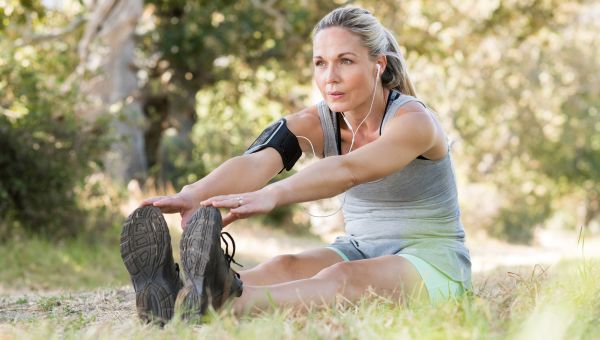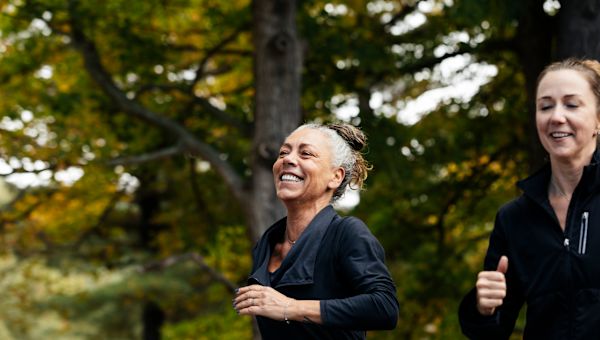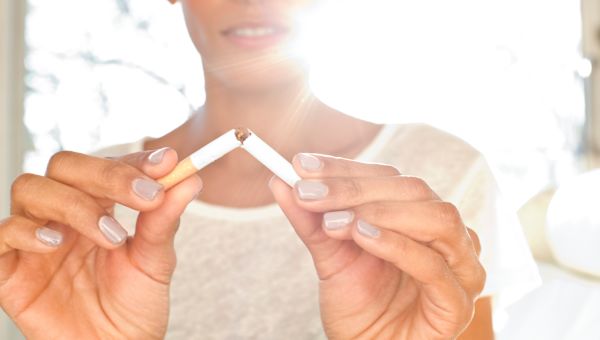5 daily habits to help keep your breasts healthy
Simple lifestyle tweaks may help protect your breasts and improve your overall well-being.
Updated on October 21, 2024

Breast cancer is the second most common cancer among women in the United States. One out of eight women will be diagnosed with breast cancer in her lifetime.
Although these statistics are alarming, making a few lifestyle changes can help protect the health of your breasts and possibly lower your risk of breast cancer. Here’s how.

Rethink your drink
Sipping even one alcoholic drink per day is linked with a 7 to 10 percent higher chance of developing breast cancer, according to the American Cancer Society (ACS). Alcohol can not only damage DNA in cells, which increases cancer risk. It may also raise the body’s estrogen levels, bumping up the odds of breast cancers that are fed by estrogen, such as hormone-receptor-positive breast cancer.
Avoiding alcohol entirely is the only way to not raise your rise. “If you drink alcohol, it is recommended that you consume less than one drink per day,” says Sean Edmunds, MD, the department chair of OBGYN at St. Mark’s Hospital in Salt Lake City, Utah. At your next happy hour, instead of a second glass of wine, reach for soda water with lime. Remember, one drink is equivalent to 12 ounces of beer, 5 ounces of wine, or 1.5 ounces of liquor.

Maintain A Healthy BMI
People who are considered overweight—indicated by a body mass index (BMI) of 25 or greater—have a higher risk of breast cancer than those who maintain a healthy weight, especially after menopause. Being overweight can also increase the risk of a breast cancer recurrence.
Why the increased risk? Fat cells produce estrogen, which can contribute to the growth of hormone-receptor-positive breast cancers. Being overweight can also mean higher levels of insulin in the blood, which is associated with higher breast cancer risk.
Reaching and maintaining a healthy weight begins with eating a healthy diet and establishing healthy habits around exercise.

Squeeze In Exercise Each Day
In addition to a healthy BMI, your activity level is important. More physical activity is likely to lower the risk of developing breast cancer, especially after menopause.
Besides being a way to lose weight, exercise has other complex, positive effects on the body. These include reducing inflammation and regulating hormone levels, all of which have a protective effect when it comes to breast cancer.
“The recommendation is at least 150 minutes of moderate-intensity exercise a week,” Dr. Edmunds says. “I recommend 30 minutes of moderate exercise most days of the week in addition to regular resistance training.”
The ACS recommends aiming even higher and trying to get 300 minutes of moderate-intensity exercise per week. This tends to be the upper range of the recommended weekly minutes of exercise. Getting more is even better. (Moderate-intensity exercise includes brisk walking, light jogging, and low-intensity bicycling. Even working around the house, like gardening, counts.)

Quit tobacco
Smoking raises your risk for lung and mouth cancers, but it may also increase your risk for breast cancer, especially if you started the habit before having your first child or if you smoked heavily over a long period of time. Researchers are also looking into secondhand smoke and breast cancer risk.
A direct, definitive link between tobacco smoke and breast cancer hasn’t yet been established. But the possibility of such a link plus the other unquestioned health benefits of quitting (and of avoiding secondhand smoke) are so bountiful that it’s a smart move to quit smoking.

Choose Healthy Foods
Links between specific diet choices and breast cancer are still being investigated by researchers. There is no official consensus on which foods are best for preventing breast cancer. But since overweight and obesity are definite risk factors for breast cancer, it’s smart to follow guidelines about healthy diets that can help manage weight.
As a way of enjoying general health benefits and lowering the risk of other types of cancer, the ACS recommends lowering intake of fat, red meat, and processed meat, while raising intake of fruits, vegetables (especially dark leafy greens), and whole grains.

American Cancer Society. Factors with Unclear Effects on Breast Cancer Risk. Page last updated December 16, 2021.
American Cancer Society. Key Statistics for Breast Cancer. Page last updated September 14, 2023.
American Cancer Society. Lifestyle-related Breast Cancer Risk Factors. Page last updated September 19, 2022.
American Cancer Society. 3 Diet Changes That Can Help Lower Your Breast Cancer Risk. Published on: October 18, 2024.
Cleary MP, Grossmann ME. Minireview: Obesity and breast cancer: the estrogen connection. Endocrinology. 2009;150(6):2537-2542.
National Breast Cancer Foundation, Inc. Breast Cancer Facts & Stats. Page last reviewed June 2023.
More On


video

slideshow


video


video
